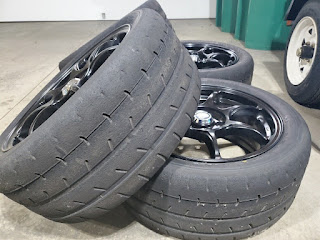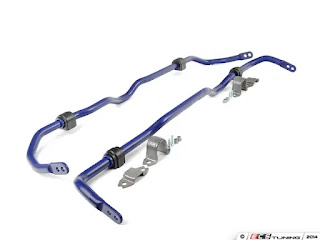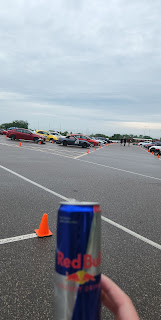The Definitive Autocross Tire Guide
The Autocross Diaries
By: Jasper Gantriis
So, you're going into your next autocross event. You've done your initial preparations, hopefully with the help of my guide. If not, check out my last post for the best initial practices for your autocross event prep here.
For those who do not know, I am Jasper Gantriis. I am relatively new to autocross, but have attended a number of events, and had some moderate success in the Novice and STH (Street Touring Hatchback) classes through the MNAutox events. I have spent months diving into the intricacies of this surprisingly complex sport, and want to help you get better, because let's face it, it's more fun when you win.
For today's topic, we will be talking about tires. Tires are incredibly important in Autocross, because they are (hopefully) the only part of your car that actually touches the road. Different tires provide different levels of grip, and different classes allow only certain types of tires. The SCCA regulations manual is incredibly complex, and thus it can be confusing trying to find the tires you should use for an event.
So, for today's post, I am going to break down what type of tire you should use for the 3 basic class distinctions, and offer a recommendation based on what I know to be a fast tire.
So, without further ado, lets dive in!!
Tire Guide by Class
Novice: Whatever you got
 |
| Michelin Pilot Sport 4s Tire |
However, having an equipment malfunction is obviously not good, so if you do need new tires, opt for a summer performance tire set. For my first few events, I ran on a set of Michelin Pilot Sport 4S tires.
They are available in a variety of sizes, aren't crazy expensive, and will be competitive enough where you won't be out of your league.
Street Classes: 200TW Tires
So, the next step up from the Novice class is street classes. This includes A-H Street, and Street Touring classes. For these classes, full racing tires are not allowed, but "Streetable Competition" tires are fair game. These tires carry a UTQQ of 200, meaning they are the softest compound of rubber allowed for street use.
 |
| My personal A052 tires |
Compared to the aforementioned Michelins, which have a UTQQ of 320, these tires are incredibly sticky, and can provide you with massive amounts of grip. This grip translates to approximately a 3 second time difference, or a 7% pace increase compared to standard street tires. Thus, you'll want these to be even remotely competitive.
There are a lot of options in this segment, and they vary in pace, durability, and wet weather performance. However, one tire stands above the rest, the Yokohama Advan A052. This tire is the fastest of the 200TW options, and while it may not be cheap, it has become known as the quintessential Autocross tire. You can buy it here from TireRack in a variety of sizes.
Prepared and Modified Classes: Hoosier A7
 |
| The Hoosier A7 Tire |
Unlike the 200's, there's only one real option for R-Compound tires for Autocross, the Hoosier A7. This tire, and it's sibling, the R7, are the best in the business. The A7 uses an even softer rubber than the R, which leads to them getting up to operating temperature quickly. They aren't cheap, but for maximum performance, there's nothing better.
If you're ready to take the plunge, head on over to TireRack, and pick up a set for yourself!
So, now you know what tires to use to be competitive in any autocross class, take this knowledge and use it to go win!
I want to know, what car will you be taking to your next event? Also, where would that event be? For anyone in Minnesota, I strongly suggest the MAC (Minnesota Autosports Club) events.


Comments
Post a Comment